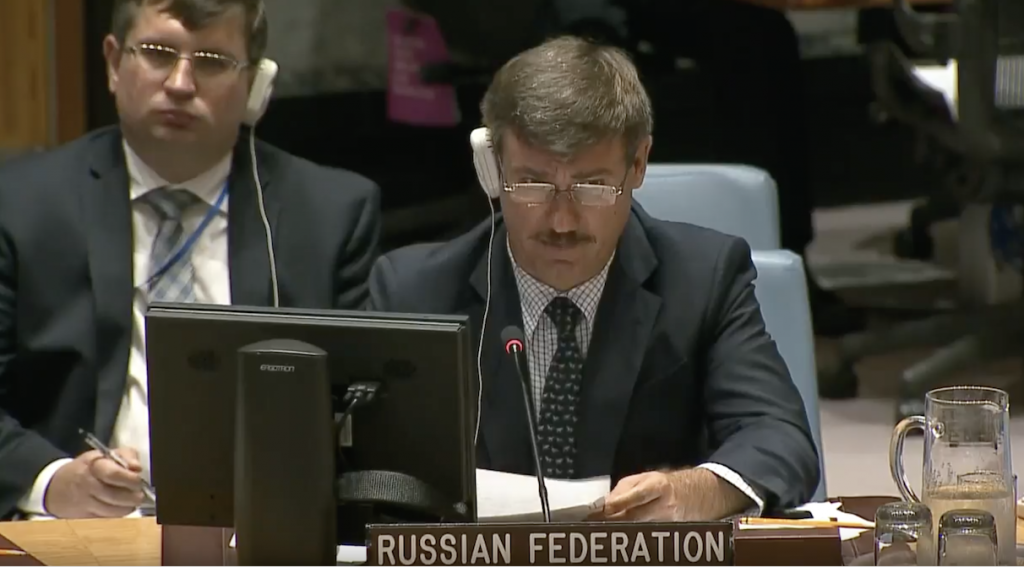Statement by Mr. Petr Iliichev, Chargé d'Affaires, at the Security Council on the Sudan and South Sudan
We thank Assistant Secretary-General Wane for his substantive briefing. We are also obliged to the Secretary-General for the balanced assessment he has given once again in his monthly report, and grateful to President Mogae for his detailed statement.
We share the view that the situation in South Sudan can be stabilized only through a sustainable ceasefire and the start of an inclusive national reconciliation process. The South Sudan crisis has already had severe humanitarian consequences. The worst impact of its escalation has been in the subregion, where it has resulted in a significant increase in the influx of refugees into neighbouring countries. In that regard, we would like to note the constructive attitude of South Sudan’s neighbours, particularly the Sudan, in helping to alleviate the humanitarian situation.
We also do not think it fair to blame the ongoing violence exclusively on Juba, which had already announced a ceasefire unilaterally. It is crucial to ensure that the opposition takes similar steps. We continue to believe that the threatened sanctions will not help to solve the crisis, and they might in fact make it worse — a view that coincides with that of the African Union, the Intergovernmental Authority on Development (IGAD) and other countries of the region.
We note that advance units of the Regional Protection Force began deploying to South Sudan in May. We assume that IGAD and the United Nations Secretariat will continue to work with the South Sudan authorities on mutually acceptable modalities for that operation. We would like to point out that Juba has maintained its constructive position on the issue of the Regional Protection Force, as the Government’s decision on providing plots of land for its bases testifies. We urge South Sudan and its troop-contributing countries to work together to enable the Regional Force to reach operational readiness.
We are hoping for success for the national dialogue initiated in May by President Kiir with the participation of all ethnic groups, political stakeholders and population sectors, with the goal of achieving national reconciliation and an end to the conflict in South Sudan, and we urge everyone to give it their full support.
We would like to note the personal efforts of Secretary-General António Guterres in this area, and we welcome the coordinated efforts that regional actors are making to facilitate a settlement in Southern Sudan. Nor should we neglect to mention the initiative launched at IGAD’s June Summit for the revitalization of the South Sudan peace Agreement and the regional stakeholders’ efforts to implement it.
We trust that the Ugandan-mediated contacts with South Sudanese parties will also bear fruit. At the same time, we would like to caution against excessive optimism. The political process is only just beginning. There is a great deal of laborious work that lies ahead if we want to see a convergence of positions and seek compromises. We hope that the cooperation among the United Nations, the African Union and the Intergovernmental Authority on Development will demonstrate its effectiveness.
